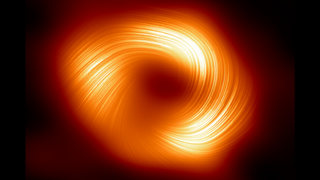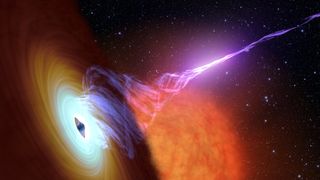Keith Cooper is a freelance science journalist and editor in the United Kingdom, and has a degree in physics and astrophysics from the University of Manchester. He's the author of "The Contact Paradox: Challenging Our Assumptions in the Search for Extraterrestrial Intelligence" (Bloomsbury Sigma, 2020) and has written articles on astronomy, space, physics and astrobiology for a multitude of magazines and websites.
Latest articles by Keith Cooper
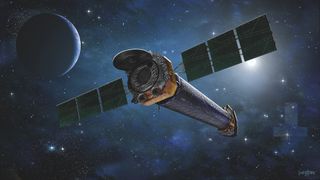
NASA delays budget-cut decision about Hubble and Chandra space telescopes
By Keith Cooper last updated
A decision to cut spending on the Hubble Space Telescope by 10% and on the Chandra X-ray Observatory by 40% has been postponed.
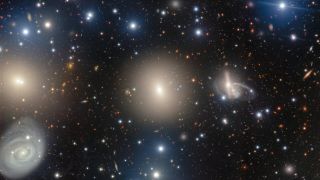
Massive, bustling Perseus galaxy cluster dazzles in new telescope image
By Keith Cooper published
Deep in the heart of the massive Perseus cluster, giant galaxies stir, stars are torn from their homes and hot gas radiates at more than 1 million degrees Celsius.
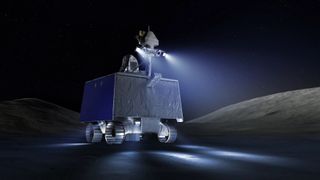
Remote-control robots could help humanity explore the moon and Mars
By Keith Cooper published
Teleoperated rovers could soon be working on the moon, with human controllers on Earth manipulating the rovers' tools virtually.
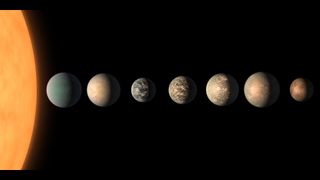
SETI tests new alien-hunting strategy, but TRAPPIST-1 planets remain silent
By Keith Cooper published
A new search for extraterrestrial radio signals during planetary occultations in the TRAPPIST-1 system provides a promising new strategy for hunting for extraterrestrial life.
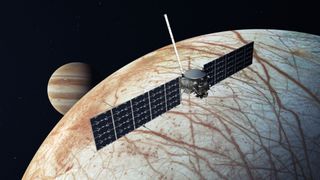
Europa Clipper: A complete guide to NASA's astrobiology mission
By Keith Cooper last updated
Reference The Europa Clipper is NASA's mission to explore Jupiter's icy moon Europa. Explore the mission in more detail with our ultimate guide.
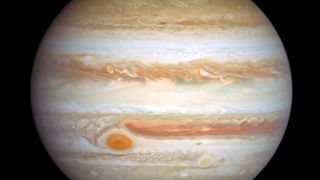
Jupiter's Great Red Spot is being squeezed, Hubble Telescope finds — and nobody knows why (video)
By Keith Cooper published
The Hubble Space Telescope has seen Jupiter's Great Red Spot oscillating in width as it drifts around the planet. Could this be related to its overall shrinking?
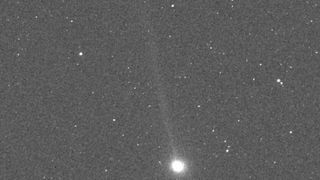
Phew! No 'doomsday' asteroids hide in famous broken comet's debris stream
By Keith Cooper published
The Taurid Meteoroid Stream, responsible for two November meteor showers and possibly the Tunguska and Chelyabinsk impacts, probably doesn't hide a civilization-killing asteroid, a new study finds.
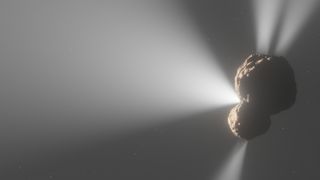
James Webb Space Telescope watches a frozen, comet-like object shooting jets of gas
By Keith Cooper published
Jets of carbon monoxide and carbon dioxide gas were seen coming from a centaur, but what drives them is a big mystery.
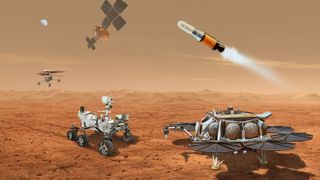
Can Rocket Lab come to NASA's rescue with new Mars sample-return plan?
By Keith Cooper published
In response to NASA's plea for help bringing the cost and complexity of its Mars sample-return program, Rocket Lab has won a contract to study a potential solution.
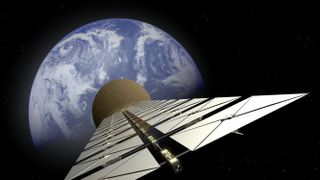
4 futuristic space technologies — and when they might happen
By Keith Cooper published
All four technologies are grounded in reality, but some are more feasible than others.
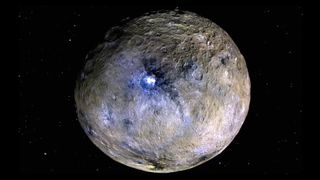
Dwarf planet Ceres once had a muddy ocean, study suggests
By Keith Cooper published
New computer simulations show how a now-frozen ocean of water mixed with dirt and rock could explain geological features on Ceres' surface.
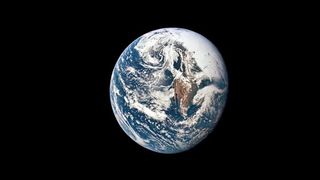
Earth is a spaceship like the ISS — let me explain
By Keith Cooper published
From water recycling to carbon capture, there are a myriad ways in which space technologies can be applied to help us live in a more environmentally friendly way on Earth.

A star-studded Rosette nebula brings gorgeous color to the cosmos
By Keith Cooper published
The Rosette Nebula in Monoceros is captured in all its glory, revealing the sites of star formation and the feedback effects of stars that have already coalesced out of the nebula's molecular gases.

The Milky Way's 2 biggest satellite galaxies are oddly lonely, study finds
By Keith Cooper published
The Milky Way's system of small, orbiting satellite galaxies is quite unusual, a new 12-year study of other galaxies in the local universe has found.
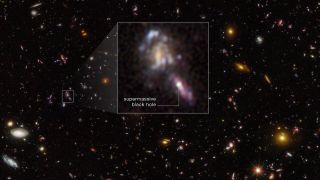
Hubble Space Telescope suggests our ancient universe was surprisingly crowded with supermassive black holes
By Keith Cooper published
A 14-year Hubble Space Telescope study suggests the universe was teeming with supermassive black holes. But how could that be?
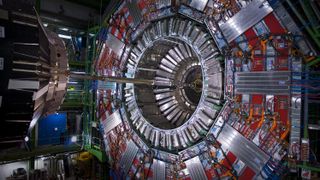
The W boson caused a particle mystery — but scientists have cracked the case
By Keith Cooper published
A puzzling discrepancy in measurements of the mass of the W+ and W– bosons, which are fundamental particles that carry the weak force, has been resolved by the Large Hadron Collider.

Weird striped rock 'unlike any seen on Mars' found by Perseverance rover. Here's why NASA's excited
By Keith Cooper published
While climbing a crater rim, NASA's Perseverance Mars rover spotted a curious striped rock that may have rolled from farther uphill, hinting at treasures the robotic explorer has yet to find.
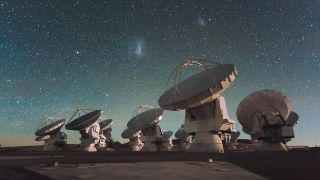
Atacama Large Millimeter/submillimeter Array (ALMA) radio telescope: How it works and top discoveries
By Keith Cooper last updated
Learn all about the Atacama Large Millimeter/submillimeter (ALMA) radio telescope, including what it does, how it works and its top discoveries.
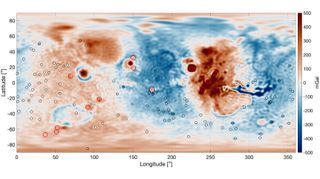
The largest volcano on Mars may sit above a 1,000-mile magma pool. Could Olympus Mons erupt again?
By Keith Cooper published
A low-density, weak-gravity region has been found below Olympus Mons and the Tharsis volcanoes, while Mars' northern hemisphere is littered with puzzling high-gravity structures beneath the surface.
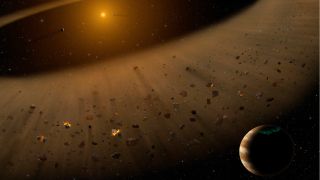
2nd Kuiper Belt? Our solar system may be much larger than thought
By Keith Cooper published
Eleven objects found at the extremities of the solar system could mark the location of a 'Kuiper Belt 2.'
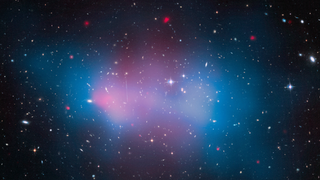
AI is on the hunt for dark matter
By Keith Cooper published
The secrets of dark matter might be hiding in the immense cosmic crashes that are colliding galaxy clusters.

The moon might still have active volcanoes, China's Chang'e 5 sample-return probe reveals
By Keith Cooper published
The moon could still be volcanically active today, according to samples brought to Earth by China's Chang'e 5 mission in December 2020.
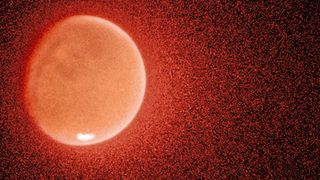
Mars leaks faster when closer to the sun
By Keith Cooper published
NASA's MAVEN mission and the Hubble Space Telescope have teamed up to reveal new insights into how Mars' water is leaking into space.
Breaking space news, the latest updates on rocket launches, skywatching events and more!

